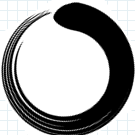Being, Feeling, and Doing Better 2
If this sequence about being, feeling, and doing better is to be significant, it should more than offset the chief conceptual problem that any hierarchy of concepts confronts, namely, the problem that conceptual hierarchies are static whereas life is dynamic.
That problem lurks behind or beneath all enterprises such as this one.
In Part I, certain ordinary words were regimented for our use and certain technical words were introduced. These included: concept, judgment, more fundamental than, form, pure form, entity, predicative judgment, identity judgment, material identity judgment, logical identity judgment, sensation, perception, philosophy, first philosophy, ontology, epistemology, axiology, and sage.
Having a clearer, common terminology is helpful because it offers a better conceptual orientation or framework designed to facilitate clearer communication.

It’s best to think of words merely as pointers. If the menu succeeds in getting us to imagine the food, it’s working as well as can be expected.
When we look at the problems our species confronts, we can become overwhelmed with fear and despair. It’s not just the injury we’ve done to our home but also what we’ve done to each other in the past as well as the myriad present dangers we confront. In the last century alone there were hundreds of millions of premature deaths and otherwise unnecessary injuries caused by our inhumanity to each other.
Today, there is of course the threat of nuclear war as well as conventional war. Political and religious fanaticism is rampant. Human overpopulation and environmental degradation are straining our ability to produce and distribute healthful food. That not only breeds terrorism and civil unrest but also threatens more political turmoil such as the increasing dangers posed by Russian and Chinese aggression and the rise of fascism in the United States.
The history of great power politics is little but a bloody trail of horrors. This was understood by Aeschylus and other intellectuals literally thousands of years ago. Churchill called history "one damn thing after another."
Even in economically advanced countries like the United States, most people are busy struggling with their individual problems. These include economic inequality; unequal educational opportunities; prejudice and discrimination against various groups that leads to racial injustice and similar systemic insults; restricted access to health care and reproductive services; group think; and so on.
Aren’t you struggling to flourish spiritually, emotionally, financially, physically, intellectually, and morally? If you are not a sage, you are whether you like to admit it or not.
Let's focus on emotional well-being in our effort to promote being, feeling, and doing better. What is it? What are we able to do to promote emotional well-being in ourselves and others? Such emotional success won’t solve all our problems, of course, but it may ameliorate them more than is often understood.
Doing better emotionally removes a serious impediment to being, feeling, and doing better.
There’s no choice other than to begin where we are. So, where are we?
We are in trouble, both individually and collectively. How do we get from there to wisdom, living well?
In my view, the Buddha was the greatest philosopher who ever lived. According to him, “The purpose of wisdom . . . is abandoning.” As individuals, fulfillment for each of us as individuals would be for us to become a sage. All philosophers would agree with that. What does it mean?
A sage is someone “[w]ho clings to nothing here.” In other words, a sage is a human being who has mastered the art of nonattachment. What? Why?
Obviously, this is an unpopular view. It's even unpopular among philosophers who are typically attached to thinking. My guess is that not only don’t most human beings understand it, but, even if they did, they’d reject it. So? What does truth have to do with popularity?
If you didn’t already realize it, going over even a short list of our collective and individual problems should be sufficient for you to admit that it’s normal for human beings to be dissatisfied, dysfunctional, and unhappy. Yes, there may be occasional episodes of joy, but suffering (misery, discontent, unsatisfactoriness, unease) is our normal condition.
Like other sages, the Buddha doesn’t just tell us that it doesn’t have to be that way; he shows us. Rather, since he died some two-and-one-half millennia ago, he showed us.
Since, again [see Part 1], axiological recommendations should be based on an apprehension of reality, why should we think that the way of nonattachment is the way to living well? [I’ve discussed this in other places such as in Mastery in 7 Steps and Are You Living Without Purpose?]
We are fortunate in that the Buddha, Jesus, and other sages have offered us a prescription that, if we followed it, would enable us to live well collectively and individually. That prescription, though, depends upon a particular diagnosis of our fundamental situation. There’s no reason to follow their prescription without first apprehending their diagnosis.
Why are we, individually and collectively, so dissatisfied? Why do we have to struggle so incessantly? What, if anything, are we doing wrong?
We are alienated from ourselves. We don’t apprehend – much less – realize our own nature. We live separated from the divine.
There are different ways that sages have tried to explain the root of our problems. There’s no one best way to do it.
Just as there’s no one way best way to write a menu to describe the food offered, there’s no one best way to describe the normal misapprehension of reality that underlies our suffering. Just as one can only apprehend the food by eating it rather than reading about it, so one can only apprehend our true nature by uncovering it rather than by reading about it.
Sages have come from different cultures, spoken different languages, and lived at different times. Distinguishing real sages from fake ones isn’t easy. Furthermore, conceptually understanding even real sages from our own culture, who are recent or contemporary, and speak our own language is impossible. They are only able to offer us menus when we crave food.
At least, though, we have those menus. Another advantage we have here is that we are focusing only on one aspect of wisdom, namely, living well emotionally.
Like me, you are a human being. Do you take yourself simply to be a person?
If so, right there is the critical limitation. If you take yourself to be a person, you are, of course, not wrong.
However, if that's all you take yourself to be, then wisdom will remain impossible for you.
Why? It’s because you are much, much more than just a person. Although you are indeed a person, you are also essentially Being itself. Realizing that (and not just thinking it) is transitioning beyond being a person. It's the crossover from personhood to sagehood.
We focused above on our collective and individual problems. What do all problems have in common?
They are all temporal. All problems occur in time. They are all stories with beginnings, middles, and endings.
How much of your life do you devote to solving problems? Perhaps all of your waking life. If, at least while awake, you are incessantly working on solving your problems, then you yourself are obstructing apprehension of your true nature.
Your true nature is Being. It’s the true nature of all humans. That is why we are all of equal moral value.
Reality, what-is, is divisible into the temporal and the nontemporal, into what is in time and what is not in time, into time and eternity.
Analogy: what if blue were the only color we were able to apprehend? Question: would blueness be a concept? Could we sort physical objects into those that are blue and those that aren’t blue?
No. Since they would all be blue, blueness wouldn’t be a concept. It could not be used to do any sorting or conceptual work.
We have a concept of time. For example, daily activities are temporal whereas mathematical judgments or equations (e.g., ‘2 + 3 = 5’) are timeless. If everything were temporal, we would lack a concept of time.
Thinking takes time. It can occur rapidly, but solving a problem is often not only difficult but takes time.
This is why Mother Nature gave us emotions like fear. If you find yourself standing too close to a poisonous snake, fear should prompt you to jump away quickly rather than to take the time to think about what to do. Short-term emotions like that have survival value. (Some sages don't even think of such short-term impulses or instincts as emotions at all.)
It's nearly always the prolonged unwanted emotions like shame, guilt, grief, anger, and fear that cause us problems. Our tendency is to spend energy trying to ignore them or distract ourselves from them. That's not living well.
It's not as if there are two steps required -- first to stop living poorly and then to begin to live well. There's only one step because automatically living better follows whenever we stop living poorly.
Let me foreshadow what's to come in this sequence:
The more time we spend thinking, the more time we spend ignoring Being. The absence of thinking is the presence of Being.
The more attached we are to thinking, the less open we are to Being.
Since Being is our true nature, this separates us from what we are. That separation creates our dissatisfaction.
Is that an “Aha!” moment for you? Did you just have your initial insight into why the way of nonattachment is the way to wisdom?
Drop all thought and wake up to Being.
